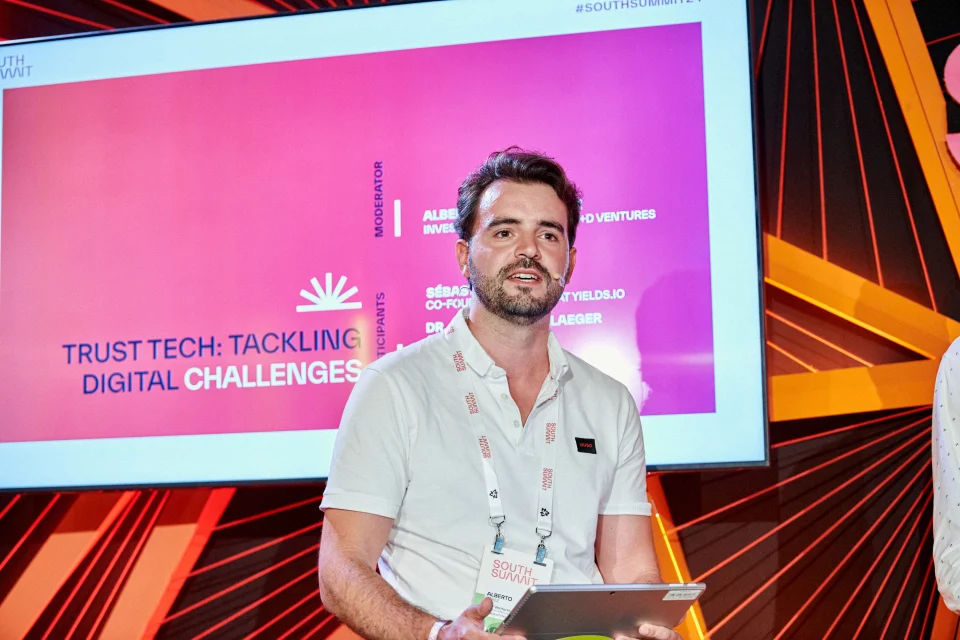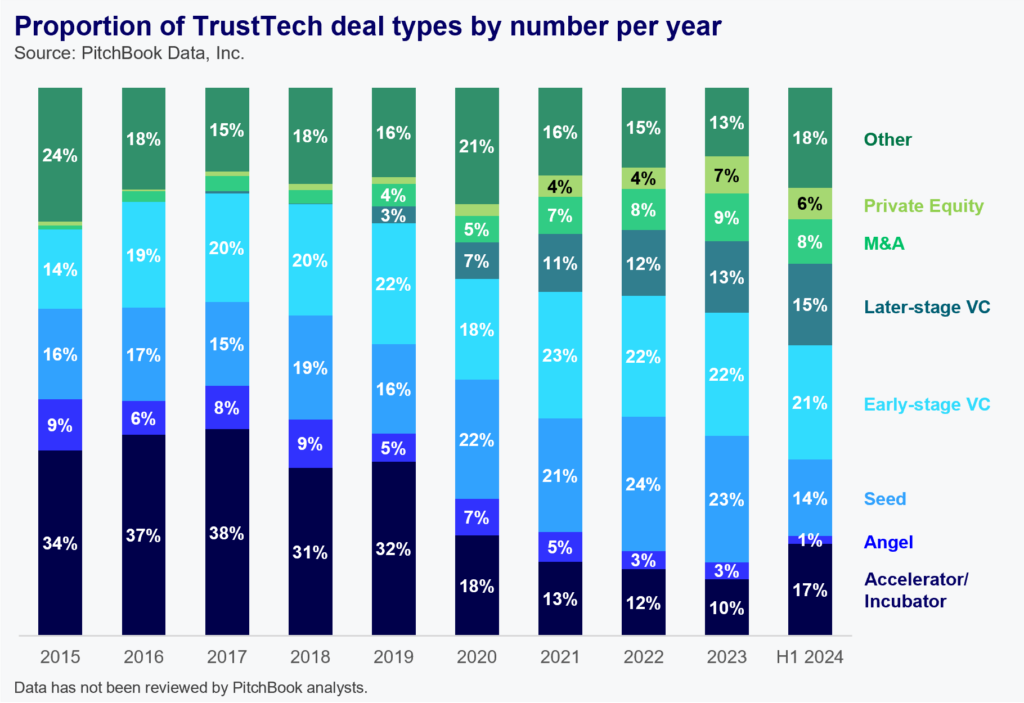TrustTech Challenges in the Digital World
In a world where trust is the new currency, TrustTech is at the forefront of securing our digital and real-world interactions. From verifying identities to safeguarding sensitive data, TrustTech is shaping the future of digital security. However, as technologies evolve and digital ecosystems get more complex, so does the threat landscape.
G+D Ventures invests in European TrustTech startups that are working to solve critical problems in today’s digital ecosystems. Let’s explore some of these pressing challenges and how TrustTech innovations are helping to overcome them.
But first – What is TrustTech?
TrustTech represents a suite of technologies designed to secure and restore trust within our society and digital ecosystems. Forming the backbone of digital trust, TrustTech encompasses everything from cybersecurity, identity and access management, privacy-enhancing technologies to RegTech, AI trust, risk and security, and more.
TrustTech has attracted significant interest since 2015, with VC investments surpassing €11 billion. There has been a noticeable decline in pre-seed deals after 2020, with a greater emphasis now on more mature early-stage investments. However, early-stage deals aren’t the only focus; there’s also been a significant rise in later-stage and private equity investments. This shift suggests that the ecosystem is maturing, with startups progressing beyond their initial development stages.
As a VC focusing solely on trust-enabling technologies, at G+D Ventures we have seen various safety and security issues arise as a consequence of technological innovation. We’ve summarized two such challenges below.
Data privacy and data security as the main barriers to GenAI adoption
GenAI is revolutionizing the way we work and do business. However, its adoption comes with significant risks, particularly around data privacy and security. As training these models require large amounts of data, there is a chance that sensitive information could be inadvertently exposed or misused. Companies are wary of how data is collected, processed, and stored by GenAI systems, particularly when dealing with third-party providers who may not have transparent or robust data protection practices. The potential for data breaches, unauthorized access, and loss of control over proprietary information makes businesses hesitant to fully embrace these technologies.
Additionally, compliance with strict data protection regulations like GDPR is essential, and many companies fear the legal and financial repercussions of failing to meet these standards. The complexity of ensuring that AI models do not inadvertently violate privacy laws or leak sensitive information adds to the hesitance, as non-compliance can result in substantial fines and damage to a company’s reputation (as seen in 2023 when Meta was fined with a record of $1.3 billion by the EU).
Furthermore, security vulnerabilities in AI systems, such as adversarial attacks, raise concerns about the integrity and reliability of AI-generated outputs, which could be manipulated by malicious actors. These challenges around data privacy and security create significant hurdles for the widespread adoption of GenAI, as organizations weigh the benefits of AI against the potential risks to their data assets and reputation.
TrustTech solutions are helping overcome these adoption hurdles by providing tools and frameworks that ensure data privacy, security, and compliance. For example, privacy-preserving techniques, such as confidential computing, federated learning or fully homomorphic encryption. As AI continues to evolve, companies must prioritize data privacy and security, not only to comply with regulations but also to build and maintain trust, both within and outside organizations.
Disinformation fueled by GenAI
Disinformation poses a significant threat across multiple domains, impacting democratic processes, national security, and business integrity. Disinformation campaigns have been used to manipulate public opinion, as seen in the 2024 UK far-right protests. These campaigns erode trust in democratic institutions, contributing to increased political polarization. Moreover, disinformation is a potent tool in information warfare, where state and non-state actors deploy false narratives to destabilize societies, influence conflicts, and gain strategic advantages. In crises such as pandemics or natural disasters, disinformation can exacerbate public panic, undermine trust in authorities, and hinder effective response efforts.
For businesses, the challenge of disinformation is equally pressing. Companies are increasingly targeted by campaigns designed to damage their reputations, often involving fake news about product safety or alleged corporate misconduct. Such attacks can lead to a loss of consumer trust, which has long-term implications for brand loyalty and market position. Additionally, disinformation can affect stock markets, causing volatility and financial losses, and exposing companies to legal challenges as they attempt to navigate these crises.
The advent of GenAI has amplified the disinformation problem. GenAI can create highly realistic and convincing fake content, such as deepfakes and false news articles, which are then used in disinformation campaigns. The unprecedented scale and speed at which GenAI can produce and distribute such content make it increasingly difficult to detect and counter.
To tackle disinformation, TrustTech solutions such as open source intelligence and social network analysis are being used to detect false content. Blockchain technology offers the potential to create verifiable records of information, enhancing content authenticity. Policy efforts, including the EU’s Digital Services Act, and industry self-regulation measures are also important. However, defense is the best offense; raising public awareness and education, coupled with corporate transparency and proactive communication, are essential first steps in building resilience against disinformation.
…
G+D Ventures is dedicated to investing in early-stage European companies that are driving innovation and safeguarding trust in digital ecosystems. Discover the latest insights and trends in our European TrustTech Report H1 2024. Visit our website to explore the report and learn more about G+D Ventures at https://www.gi-de.com/en/ventures.


